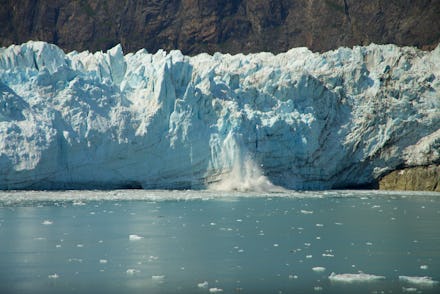2019’s extreme weather broke over 100,000 records in the U.S.

Trying to keep up with the weather this year has been a constant adventure. Now, new data says that 2019's weather broke over 100,000 records in the United States alone. With climate change showing no immediate signs of stopping, these trends could continue into 2020 and years beyond.
From fall months that had no business being so hot to raging Californian wildfires, this year didn't go easy on anybody. The Midwest also found itself experiencing a surge of climate events like devastating flooding in Nebraska, which left almost 900 people trapped in temporary shelters.
These climate events don't exist in isolation, but are part of a larger trend. According to the National Climatic Data Center, the weather in 2019 smashed over 120,000 records, including temperature, precipitation, and snowfall records.
In many cases, breaking records might be something to celebrate. For example, July 2019 ended up being the warmest month ever recorded, and that sounds fine if you love summer. However, you don't want to see this many big climate changes in a row.
“July has rewritten climate history, with dozens of new temperature records at [the] local, national and global level," Petteri Taalas, secretary general of the World Meteorological Organization, told the Post. "This is not science fiction. It is the reality of climate change. It is happening now, and it will worsen in the future without urgent climate action."
Earlier this year, over 10,000 scientists came together to release a report declaring a climate emergency. "[C]limate change is more severe and accelerating faster than was expected by scientists," one of the study's lead authors wrote. "It is threatening natural ecosystems and the fate of humanity. Many of us feel like time is running out for us to act."
The effects of climate change aren't evenly distributed, so other organizations stepped up to start including indigenous voices. For the first time ever, the National Oceanic Atmospheric Administration included a chapter authored by indigenous elders in its Arctic Report Card. Representing Alaska's Bering Sea Region, the elders spoke to how rising temperatures, low levels of sea ice, and other climate factors were impacting their communities' daily lives.
The news of record-breaking temperatures in the U.S. is particularly concerning because the current administration isn't cooperating with initiatives to fight climate change. Trump pulled out of the Paris Climate Agreement, and U.S. representatives at COP25, a U.N. climate meeting, weren't helpful there, either.
Climate change is a global issue and nobody wants it to get any worse. The recent landmark decision of a top Dutch court may start prompting increased action across the global by encouraging citizens to take their own governments to court. Although 21 young people already brought a lawsuit against the U.S. in 2015, it may be time to start increasing the pressure.